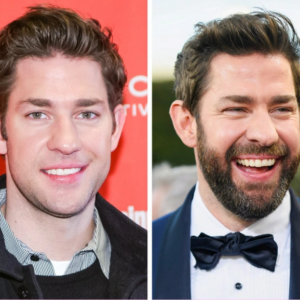If there’s one thing women’s collegiate swimmers dare not say, it’s that they think competing against Lia Thomas is wrong, but Riley Gaines clearly didn’t get the memo.
The University of Kentucky senior standout is making a name for herself outside the pool by breaking the virtual code of silence engulfing collegiate women’s swimmers on Thomas, the first male-born athlete to win an NCAA Division I women’s title.
“I feel like it’s so blatant that it’s unfair,” Gaines told The Washington Times. “I’m just trying to take a stand and do my part to help.”
Since standing next to Thomas on the podium at last month’s NCAA championships, Gaines has spoken out in interviews with Sen. Marsha Blackburn, Tennessee Republican, and right-leaning outlets, including the Daily Wire, Fox’s “Tucker Carlson Tonight,” and the Clay Travis and Buck Sexton podcast.
“It’s totally wrong. I know I can’t speak for everyone, but I’m almost certain I’m speaking for a large majority of female athletes. This is just not OK,” she said in her April 6 appearance on Fox. “We’re dealing with something completely out of our control when we’re racing biological males.”
Gaines raised her profile Wednesday by appearing at the Kentucky state legislature to support the override of Gov. Andy Beshear’s veto of Senate Bill 83, also known as the Save Women’s Sports Act.
The override made Kentucky the 15th state to ban male-born athletes from female sports.
“I have a guest that has experienced this competitive unfairness just recently, and she’s from the state of Kentucky,” said Republican state Sen. Robby Mills, the bill’s sponsor, on the floor.
“She’s an All-American student-athlete from the University of Kentucky,” he said. “Riley has recently started to bravely tell her story over what happened in the last month in SEC competition, and I’d like to thank her for being her because she has been affected by competition with a transgender [athlete].”
Certainly the 21-year-old swimmer has a story to tell. She tied for fifth with Thomas in the 200-yard freestyle last month at the NCAA Division I women’s swimming championships in Atlanta, a day after Thomas won the 500 freestyle.
As Gaines walked to the podium, she said she was approached by an NCAA official who congratulated her on her performance, then told her that because there was only one fifth-place trophy, it would be presented during the awards ceremony to Thomas.
She said she was “taken aback.”
“I said, ‘That’s fine, but why are you choosing to give the trophy to Lia?’” Gaines said. “And he responded with, ‘We want to do it in chronological order.’ And I said, ‘Well, chronological order? We just tied. I don’t know what we’re being chronological about.’”
She asked him to explain, but “he just said, ‘We’re going to give the trophy to Lia, but great swim.’”
She said Thomas was standing nearby but said nothing. Gaines posed on the podium on the sixth-place slot next to Thomas and was given the sixth-place trophy. She said she recently received her fifth-place trophy in the mail.
The NCAA did not respond to a request for comment.
“It’s not about the trophy. I have tons of trophies,” Gaines said. “There’s been a lot of, ‘Oh, sore loser, she didn’t get her fifth-place trophy,’ and I’m like, ‘That’s not the point.’ It’s really just about showing how they handled the situation. It was like they didn’t want to look bad, so they did this just to save face and appease this minority.”
Other collegiate women’s swimmers may be keeping quiet, but behind the scenes, Gaines said many have reached out to cheer her on.
They include “a ton” from the University of Pennsylvania, she said, where Thomas swam for three years on the men’s team before transitioning to female.
Thomas was ruled eligible to compete by taking testosterone suppressants for a year, as required at the time under the NCAA rules. The Ivy League swimmer went on to smash records during the 2021-22 season before winning the 500-yard freestyle at the NCAA Division I women’s championships in Atlanta.
Gaines said the mood at the finals was not angry but “somber.” During the preliminary rounds, she saw swimmers with tears in their eyes as Thomas swam.
Several UPenn swimmers raised alarm during the season about allowing Thomas to swim on the women’s team in anonymous comments to news outlets, saying they feared being labeled transphobic and were told by their coaches not to speak to the media.
Gaines credited the University of Kentucky for its approach, saying, “I have an amazingly supportive athletic department that supports me whether they agree with me or not.”
“There’s a fear of risking your athletic career or your work career if you say something,” Gaines said. “People are definitely scared. But I’m like, well, I’m not scared. I’m a senior. I can do this.”
The only other NCAA Division I women’s swimmer to speak out by name is Virginia Tech’s Reka Gyorgy, a fifth-year senior who posted a letter on Instagram immediately after the championships accusing the NCAA of failing to protect female athletes.
Gyorgy said she placed 17th in the 500 freestyle, just missing the consolation final, which felt like “the final spot was taken from me because of the NCAA’s decision to let someone who is not a biological female compete.”
Those taking public stands in support of Thomas include Stanford’s Brooke Forde and Erica Sullivan of Texas, both of whom competed against Thomas at the championships.
“Like anyone else in this sport, Lia doesn’t win every time,” Sullivan said in a March 18 op-ed in Newsweek. “And when she does, she deserves, like anyone else in this sport, to be celebrated for her hard-won success, not labeled a cheater simply because of her identity.”
The NCAA has not commented publicly since Thomas’s win, but in a letter shared March 28 with Swimming World, NCAA President Mark Emmert defended the organization’s policies on transgender participation, which were updated in January.
“As the top governing board of the NCAA, the Board of Governors firmly and unequivocally supports the opportunity for transgender student-athletes to compete in college sports,” Mr. Emmert said.
As a senior, Gaines will soon graduate, bringing her collegiate swimming career to a close. Her post-graduate plans include attending dental school and getting married. She’s engaged to former Kentucky swimmer Louis Barker.
Even though her stance on male-born athletes in women’s sports runs counter to the progressive zeitgeist, she says she has received far more positive comments than negative.
“What I’ve realized is if we want a change, you have to use your voice,” she told Ms. Blackburn. “We have to let people know as a group that the majority of us female athletes, or females in general, really are not OK with this, and are not OK with the trajectory of this, and how this is going and how this could end up in a couple of years.”





